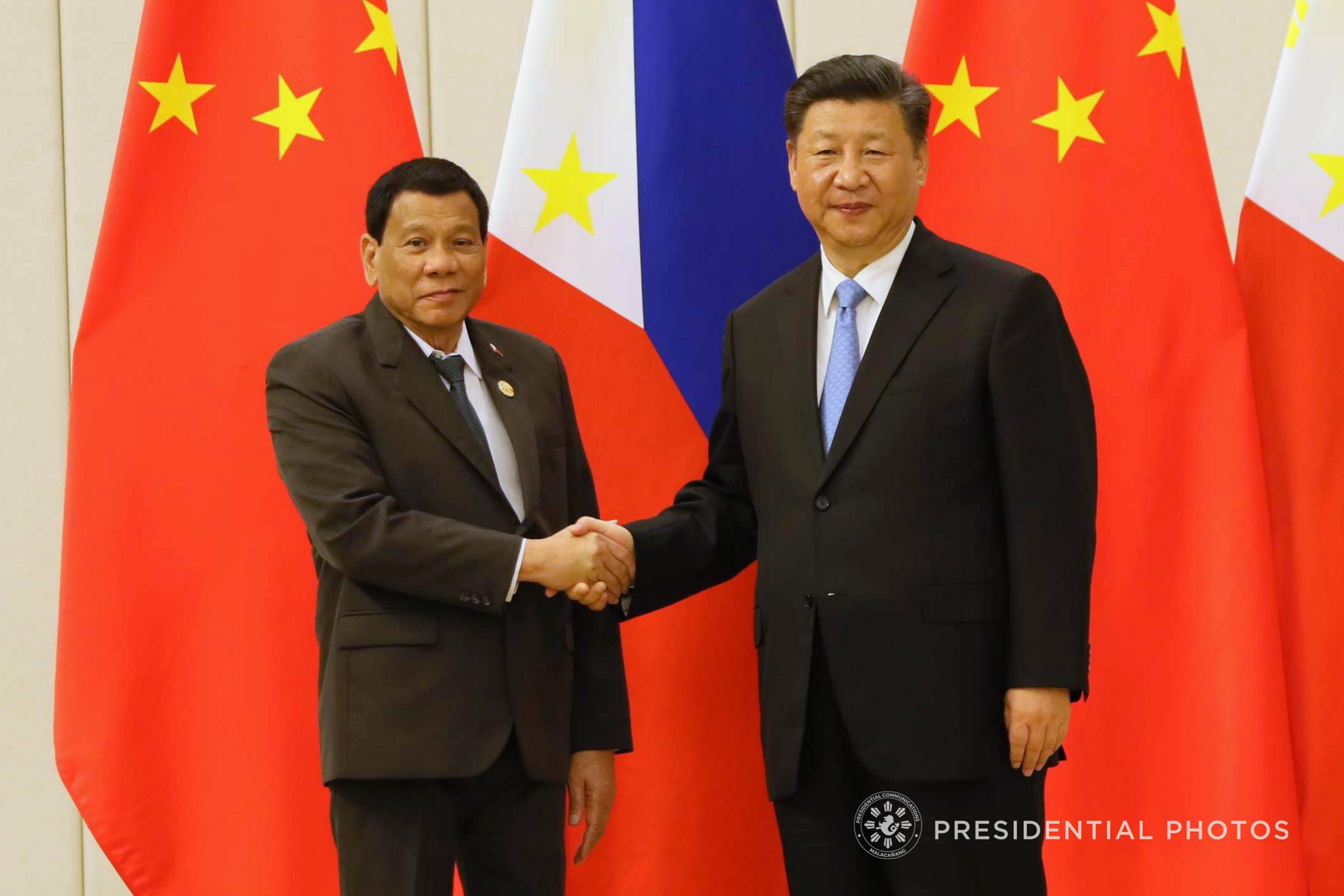News
More than 5K cops to secure Xi Jinping’s visit

FILE: It was also at “bad” levels despite public’s satisfaction with President Rodrigo Duterte. (ACE MORANDANTE/PRESIDENTIAL PHOTO)
MANILA — Some 5,500 police officers will be deployed for the state visit of Chinese President Xi Jinping on Nov. 20-21, National Capital Region Police Office (NCRPO) director, Chief Supt. Guillermo Eleazar said over the weekend.
Eleazar said most of the cops who will be deployed are from Metro Manila, but at least 200 personnel from the Calabarzon (Cavite, Laguna, Batangas, Rizal, Quezon) regional police office were requested as augmentation.
Those who would come from Calabarzon, according to Eleazar, are members of the Civil Disturbance and Management Unit.
Xi’s upcoming visit is his first in the Philippines, upon the invitation of President Rodrigo Duterte.
The two top officials are expected to sign five agreements, according to Malacañang.
Eleazar said among those who would be deployed are anti-riot cops in anticipation of possible protest actions in connection with the territorial dispute issue in the West Philippine Sea.
“There are possibilities of lightning rallies based on our monitoring, and we expect that every time there are visits from dignitaries from China and even the United States,” Eleazar said in a radio interview.
“But we have no problem with that because we always encounter lightning rallies almost every day. We are ready, and we have CDM contingents,” he added.
Eleazar said they are in constant coordination with the Chinese Embassy in the Philippines in connection with security preparations.
“We are ready, and we are continuously coordinating with various government agencies that could help us,” said Eleazar.
Eleazar was also quick to clarify that the PNP is not being controlled regarding security arrangement for the visiting Chinese President, who is expected to have several meetings with President Duterte and other local officials.
He said coordination with security agencies of any visiting foreign top official is part of the protocol.
Eleazar said they are banking on the success of various international events held in the Philippines in terms of ensuring the safety and success of the visit of the Chinese President.
“Coordination in security efforts has always been part of our preparations in summits and international events like APEC, the ASEAN which has been a template on how to secure our guests and heads of states, including our VIPs and dignitaries,” Eleazar said in Filipino.
Presidential Spokesperson Salvador Panelo earlier said Duterte and Xi will exchange views on areas of mutual concern and chart the course for the future of Philippines-China bilateral relations.
Panelo said he has no idea whether major agreements between the Philippines and China will be signed during Xi’s visit.
“None that I know but I think he is going over to the Philippines with a good opportunity to discuss certain issues that requires attention,” Panelo said in a media interview in Singapore where Duterte is attending the 33rd ASEAN Summit and Related Summits.
The Philippines-China relations had achieved positive turnaround since Duterte embarked on his first state visit to China in October 2016.
Xi had described Duterte’s first visit to Beijing as a “milestone” that mended the two countries’ ties derailed by the Philippines’ filing of arbitration case against China in 2013.
In May 2017, Duterte returned to Beijing to attend the Belt and Road Forum for International Cooperation.
For the third time, Duterte went to China in April this year to attend the Boao Forum for Asia held in Hainan, a southern island province of China.
Xi’s first trip to the Philippines will take place a year after Chinese Premier Li Keqiang visited Manila that led to the signing of 14 deals on infrastructures, climate change, defense cooperation, drug rehabilitation centers and Marawi rehabilitation.





















